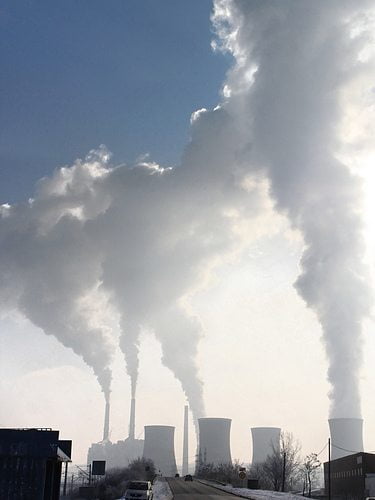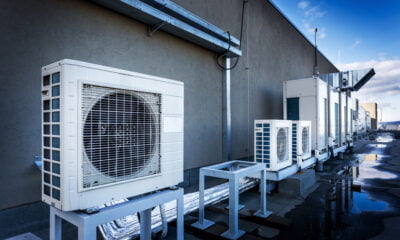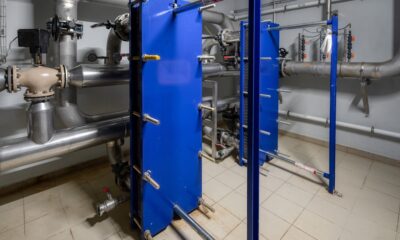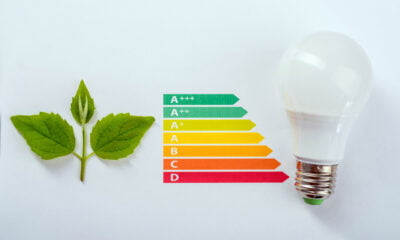

Energy
European commission sets out future energy strategy
The European commission has set out plans to improve energy security in the EU and address dependence on Russian gas. The strategy has faced criticism for its focus on fossil fuels.
Amid the Ukraine crisis, energy security has been rising up the political agenda. Earlier this month, G7 leaders met in Rome to discuss the future of Europe’s energy after Russia said it might consider cutting off gas supplies to Ukraine and eventually to Europe, which gets around a third of its gas from Russia, much of which passes through Ukraine.
European commission president José Manuel Barroso said, “The EU has done a lot in the aftermath of the gas crisis 2009 to increase its energy security. Yet, it remains vulnerable. The tensions over Ukraine again drove home this message.”
One of the key focuses of the strategy is diversifying supplier countries and routes by maintaining and building relationships with “reliable partners”. It added that it is seeking new ties with partner countries and supply routes, including expanding the Southern Gas Corridor in the Caspian Basin region and developing the Mediterranean Gas Hub.
In 2012, some 53% of EU’s energy consumption was linked to imports, with 88% of crude oil and 66% of natural gas being imported. This figure is far less when it comes to renewables, with just 4% being imported. As a result, green groups argue that renewables has the potential to improve energy security whilst cutting emissions.
The European commission also suggests increasing indigenous energy production including renewables and “sustainable production of fossil fuels”, which is likely to be shale gas. The plan says that shale gas could compensate for declining conventional gas production providing issues of “public acceptance and environmental impact” are addressed.
Günther Oettinger, European energy commissioner, commented, “We need to complete the internal energy market, improve our infrastructure, become more energy efficient and better exploit our own energy resources. Moreover, we need to accelerate the diversification of external energy suppliers, especially for gas. Only concrete actions will help.”
Campaign groups have criticised the strategy because of its focus on fossil fuels and its failure to promote energy efficiency and renewables as key to Europe’s future energy mix.
Friends of the Earth’s international energy campaigner Asad Rehman commented, “Comprehensive and urgent efforts are needed to harness the EU’s substantial home-grown renewable energy potential, which would create tens of thousands of new jobs.”
He added that investing tax-payers money in new fossil fuel infrastructure, “that will produce carbon we can’t afford to burn if we’re to meet our climate targets”, will be a waste of money.
Elsewhere, Greenpeace stated that the plan points to “false solutions like fracking and new gas pipelines” that will make the EU more dependent on fossil fuels in the coming decades.
The organisation’s energy campaigner Louise Hutchins added, “Ed Davey claimed the UK government wants to lead Europe’s efforts to increase energy security from the front.
“If so, they should be pressing for ambitious targets on energy efficiency and home-grown clean energy – that’s where the real potential to cut our dependence on dirty fuel imports and boost our energy security lies.”
Photo: Emilian Robert Vicol via Flickr
Further reading:
Investors call for ‘low-carbon commitment’ after EU delays energy and climate decision
Local and European elections: energy and climate preview
Just three EU countries on track to meet energy efficiency targets
EU parliament puts weight behind renewable energy and climate targets
G7 leaders meet to discuss energy security amid Ukraine crisis


 Environment12 months ago
Environment12 months agoAre Polymer Banknotes: an Eco-Friendly Trend or a Groundswell?

 Features11 months ago
Features11 months agoEco-Friendly Cryptocurrencies: Sustainable Investment Choices

 Features12 months ago
Features12 months agoEco-Friendly Crypto Traders Must Find the Right Exchange

 Energy11 months ago
Energy11 months agoThe Growing Role of Solar Panels in Ireland’s Energy Future




























